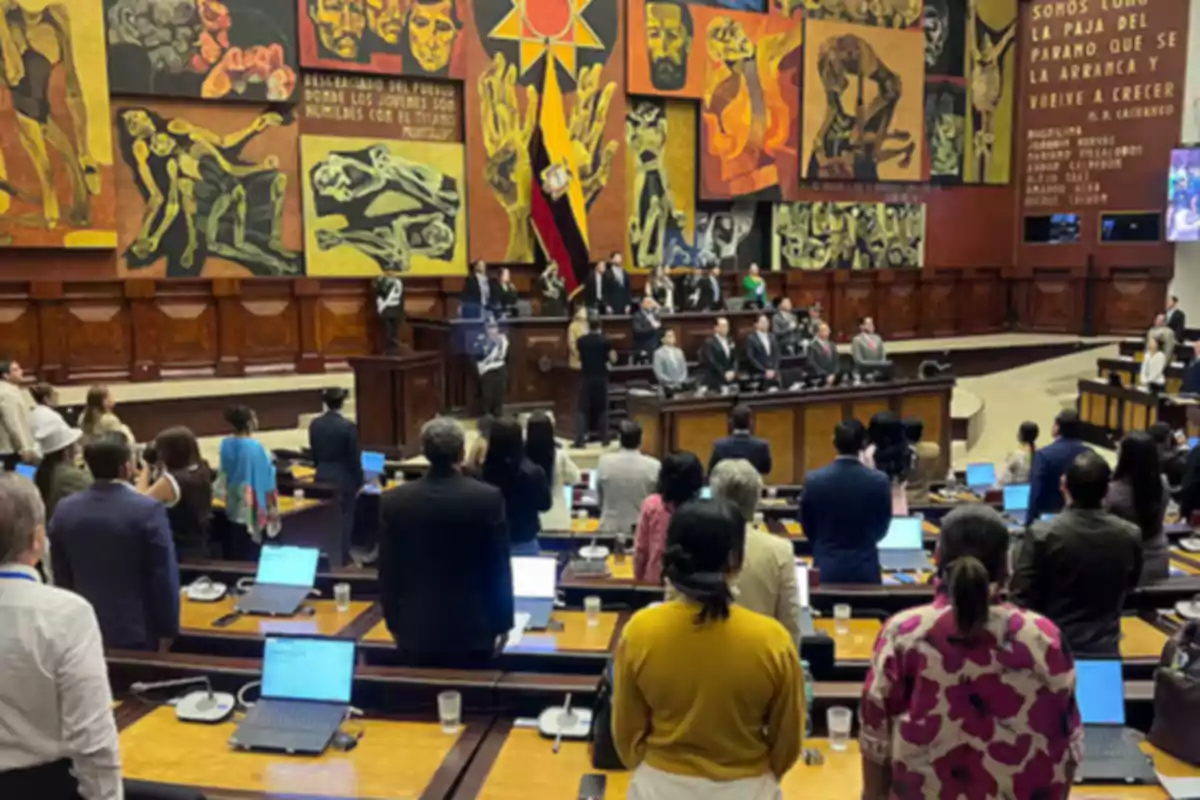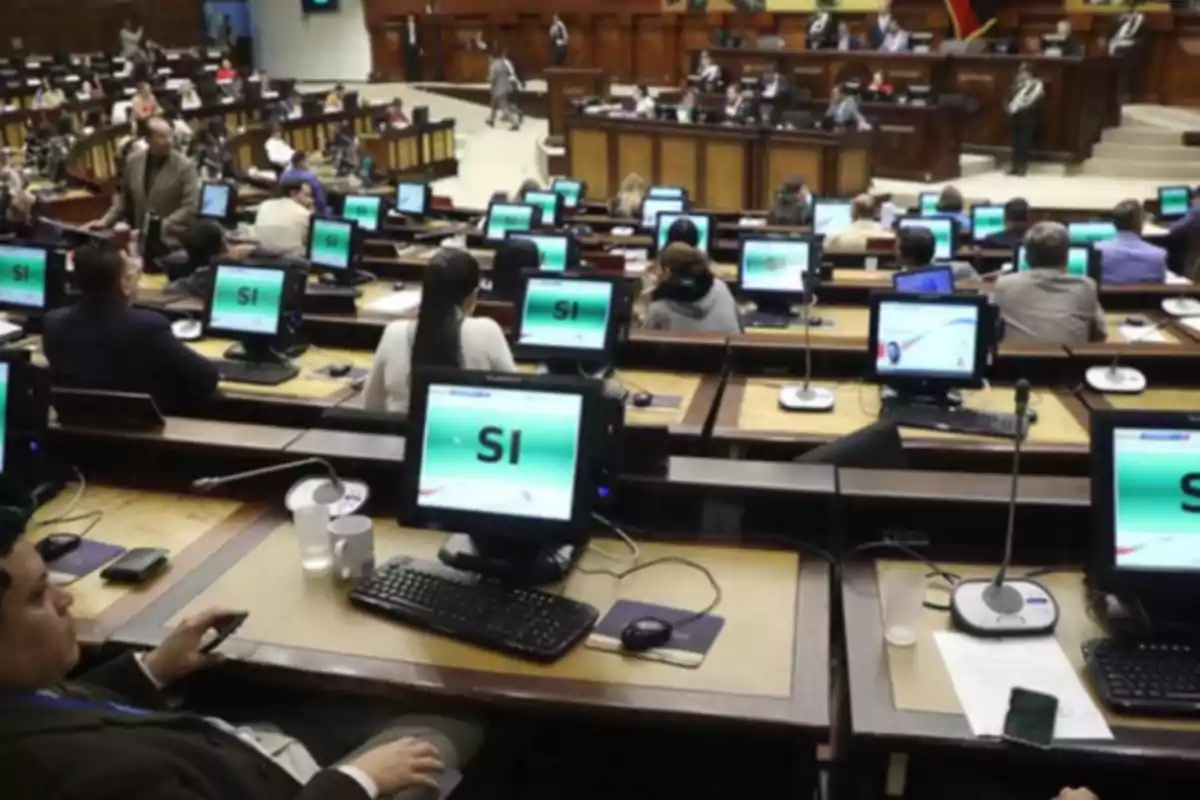
Public Integrity Law proposes eliminating state-owned companies with the approval of the Executive
The reform would allow the elimination of public entities without a budget report or legislative majority
The President of the Republic may eliminate public companies created by law, according to a controversial provision included in the urgent Public Integrity Bill. The Economic Development Commission is finalizing the report for the second debate in the plenary session of the National Assembly.
The provision, which has sparked questions, was incorporated before the first report and contemplates reforms to eleven laws. Among them, the Organic Administrative Code (COA), which would include a clause to allow the Executive to eliminate public entities without the need for another law, if legislative objection or absence of a budgetary opinion is demonstrated. Meanwhile, legislator Alfredo Serrano, argues that this provision breaks the legal principle of parallelism of forms, where laws can only be repealed by other laws. “An exclusive power of the Assembly is being delegated to the Executive,” warned the Social Christian assembly member.
In addition, the reform broadens its scope by establishing that prosecutors may also be sanctioned for malfeasance, with lifetime disqualification, a measure that until now only applied to judges and arbitrators. This inclusion reinforces the punitive nature of the legal text, without a thorough analysis of its institutional implications.
Another substantial change is the amended article of the National Solidarity Law, which prevents pardons from being granted to those prosecuted for crimes against public administration. This seems more like a political response than a structural legal reform. Legislator Diego Franco, from the ruling movement, defended the law as a tool to eliminate inefficient public structures. “This is not about giving more power to the Executive, but about combating the structural corruption that exists in several public companies,” he stated.

Franco denied that this law puts at risk the continuity of entities such as Petroecuador, the Social Security Institute, or universities. Nevertheless, he acknowledged that there are divided positions within his caucus and that the reform will be thoroughly analyzed before the second debate. Sergio Peña, a former ally of the Citizen Revolution, also expressed his support. He argued that many state-owned companies operate as “hotbeds of corruption” and must be reformed or eliminated. In his opinion, Petroecuador should operate under a bidding scheme and not be managed entirely by the State.
The most critical sectors point out that this law, although presented as an efficiency mechanism, may open the door to unilateral decisions without legislative oversight. Even among ruling party members, there are doubts about whether this represents a concentration of power or institutional modernization.
Meanwhile, citizens are watching as regulations are debated that may affect the structure of the State. The discussion revolves around two visions: one that seeks to debureaucratize and improve public administration, and another that warns about the weakening of democratic checks and balances.
The final report is expected by Friday, with the possibility of a second debate next week. Its approval will set a legal precedent regarding the balance between Executive power and the Assembly.
More posts: